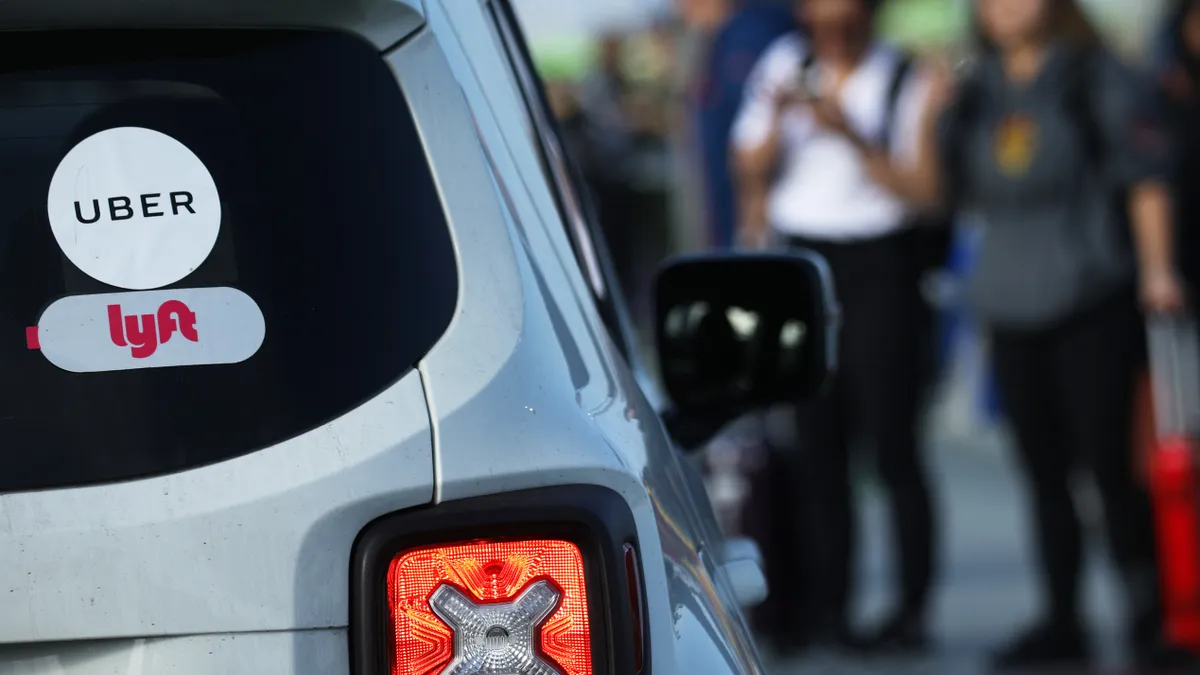Dive Brief:
-
Nearly 1 in 6 ride-hailing vehicles, including those operated by Uber and Lyft, that completed a passenger trip in August 2022 had an open safety recall in December 2022, according to a U.S. Government Accountability Office study released Monday.
-
Less than 1% of ride-hailing vehicles with an open safety recall had a “Do Not Drive” designation from the National Highway Traffic Safety Administration or an automaker. Such recalls advise against operating affected vehicles until they are repaired.
-
But “most drivers aren't legally required to fix recalled cars, and ridesharing passengers don't know the recall status of their rides,” according to the GAO.
Dive Insight:
Federal, state and local lawmakers are increasingly concerned about roadway deaths and injuries, especially fatalities among pedestrians and cyclists, which rose 13% and 1.9% from 2020 to 2021, according to a NHTSA report published in April. The safety agency estimates that almost 43,000 people died in motor vehicle crashes on U.S. roadways in 2022 — about the same number as 2021.
CARFAX, a company that provides vehicle data to individuals and businesses, found that about 1 in 5 passenger cars in the U.S. had open safety recalls in 2022, meaning they had a safety-related issue that hadn’t been addressed.
Ride-hailing vehicles may be less likely to have open safety recalls, as “newer vehicles generally have higher completion rates,” the report says. The typical U.S. passenger car is about 12 years old, while ride-hailing vehicles are about six years old.
Federal law does not require vehicle owners, except rental car companies, to complete open safety recalls. But NHTSA has worked with Uber, Lyft and other ride-hailing services to raise awareness of them among drivers.
Maryland is the only state that requires ride-hailing vehicles to remedy open safety calls annually.
While some localities, including Boston, Seattle and San Francisco, have wanted to require ride-hailing vehicles to repair open safety recalls, state preemption laws have prevented it. Such laws ensure that state law supersedes local law when it comes to ride-hailing services.
The GAO found that ride-hailing companies may require drivers to complete open safety recalls, suspend vehicles with an open “Do Not Drive” recalls and notify drivers about major recalls.
In an email, an Uber spokesperson said the company informs “drivers about vehicle recalls that may impact them, how to check if their vehicle has an open recall, and any actions they should take. Vehicles that we know have an open recall are removed from the Uber platform until the recall is remedied, including those with a ‘Do Not Drive’ recall.”
The 2021 infrastructure law required the GAO to study how many ride-hailing vehicles had open recalls. The GAO does not plan to study open safety recalls among taxis, an agency spokesperson said in an email.











